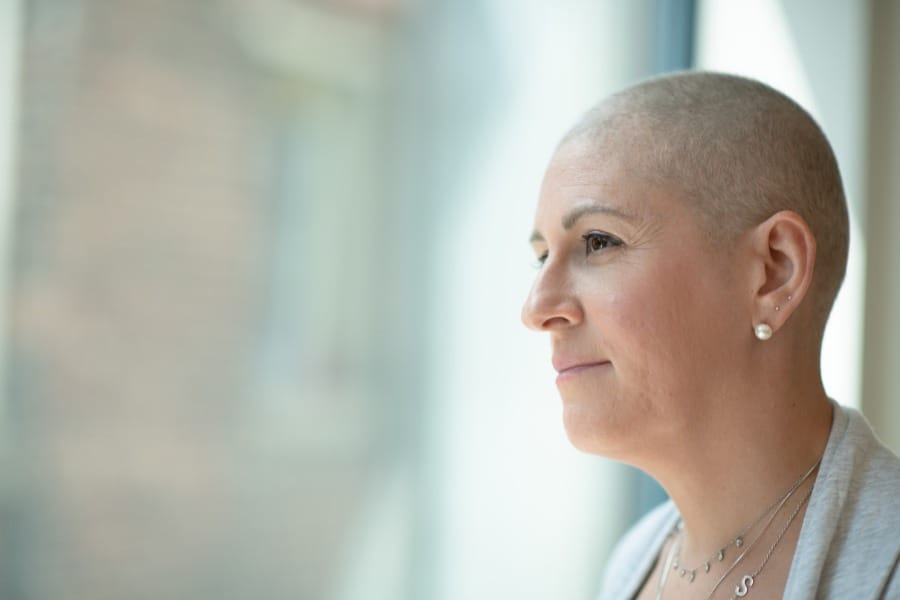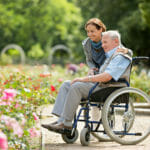Did you know that there are specialized oncologist nurses who work specifically with elderly patients who are diagnosed with cancer?
The process of being treated for and recovering from this debilitating disease requires attention to detail for all medications needed and the proper dosages. It is also vital to have a medical care professional to ensure that the patient is being scheduled for all of the required medical appointments and follow-up care.
Key Takeaways
- Nurses play a crucial role in providing comprehensive care for cancer patients.
- They must have a solid understanding of the disease and its impact on the body, as well as the various treatment options available.
- Nurses work closely with patients and other healthcare professionals to develop care plans that address the unique needs of each individual.
Nursing Care for Cancer Patients
IN THIS ARTICLE
Cancer Pathophysiology
Cancer is a complex and multifaceted disease that arises from the abnormal growth and proliferation of cells. It can occur in any part of the body and can spread to other parts through the bloodstream or lymphatic system. The pathophysiology of cancer involves a series of genetic mutations that alter the normal behavior of cells, leading to uncontrolled growth and proliferation.
Cancer can be classified into different types based on the tissue of origin, such as lung cancer, breast cancer, or prostate cancer. Each type of cancer has unique characteristics, and the treatment approach may vary depending on the stage and severity of the disease.
Roles of Oncology Nurses
Oncology nurses play a critical role in the care of cancer patients. They are responsible for providing comprehensive care and support throughout the cancer care continuum, from diagnosis to survivorship or end-of-life care.
Oncology nurses are knowledgeable about cancer pathophysiology, treatment options, and side effects. They work closely with other healthcare professionals, such as oncologists, radiologists, and social workers, to ensure that patients receive the best possible care.
The roles of oncology nurses include:
- Providing patient education and counseling on cancer prevention, diagnosis, and treatment options
- Administering chemotherapy, radiation therapy, and other cancer treatments
- Monitoring patients for side effects and complications of treatment
- Managing symptoms such as pain, nausea, and fatigue
- Providing emotional support to patients and their families
- Advocating for patients’ rights and needs
- Conducting research to improve cancer care and outcomes
Nurses are especially important when patients are diagnosed with more serious and rare types of cancer, like pleural mesothelioma.
Mesothelioma is a type of cancer caused by asbestos exposure. It triggers painful and uncomfortable symptoms, and because it is a fast-spreading cancer, it requires aggressive treatments.
So, on top of the cancer symptoms, like difficulty breathing and chest pains, these patients also suffer through more severe treatment side effects. More than many other patients, they rely on nurses to provide some relief and comfort.
Some of the different types of cancer that nurses assist with in caring for the patient also include:
- Adrenal gland
- Bladder
- Bone
- Brain
- Cervical
- Gastric
- Kidney
- Leukemia
- Liver
- Melanoma
- Ovarian
- Pancreatic
- Stomach
- Thyroid
Let’s get into more detail about the nursing management of cancer patients.
Cancer Diagnosis and Treatment Planning

Early Detection and Screening
Early detection and screening are crucial in the management of cancer. Regular screening tests can help detect cancer at its earliest stages, when it is most treatable. It is important for healthcare providers to educate patients about the benefits of early detection and screening and to encourage them to undergo regular screenings.
Some common screening tests for cancer include mammograms, colonoscopies, and Pap tests. These tests can help detect cancer in its early stages, before it has spread to other parts of the body. Healthcare providers should also be aware of the risk factors for cancer and should encourage patients with a higher risk of developing cancer to undergo regular screenings.
Formulating a Nursing Care Plan
Once a patient has been diagnosed with cancer, a nursing care plan should be formulated to address their specific needs. The nursing care plan should be based on a thorough nursing assessment and should take into account the patient’s medical history, current health status, and personal preferences.
The nursing care plan should include interventions to manage the patient’s symptoms and side effects of treatment, as well as measures to promote the patient’s physical and emotional well-being. The plan should also include strategies for managing pain and other symptoms, as well as interventions for preventing complications.
Healthcare providers should work closely with the patient and their family to develop a nursing care plan that is tailored to the patient’s specific needs and preferences. Regular assessments should be conducted to monitor the patient’s progress and to modify the nursing care plan as needed.
In summary, early detection and screening are crucial in the management of cancer. Once a patient has been diagnosed with cancer, a nursing care plan should be formulated to address their specific needs. The nursing care plan should be based on a thorough nursing assessment and should take into account the patient’s medical history, current health status, and personal preferences.
Comprehensive Care During Treatment
When it comes to cancer treatment, it is important to provide comprehensive care to help patients manage the physical and emotional side effects of the disease. Here are some key considerations for providing comprehensive care during treatment.
The emotional bond that senior patients share with their caregivers and nurses can play a huge role in helping them through the challenging recovery process.
Studies have shown that patients who receive adequate support and are encouraged to talk with others about their feelings during the recovery process are more likely to avoid difficult mental health issues and have more emotional energy to focus on recovery.
Having a trusted confidant makes some patients feel more social and less alone throughout the entire process.
One of the most fundamental ways that nurses provide for patients during treatment and recovery is that they make their experience less painful and more comfortable.
They can assist with finding ways to help the patient relax so that they get a good night’s sleep and are better equipped to deal with the physical demands of treatment.
Given that nurses are educated in healthy diets and other habits, they are able to provide guidance on what types of food and exercise may be best to help someone going through this process stay as physically fit and healthy as possible.
This can make a big difference in terms of the total recovery time that a patient must endure before getting the notice that they are in remission and can resume their daily activities.
In addition, nurses prevent patients from suffering a wide range of complications that can accompany the treatment and recovery process.
For example, many patients may experience dehydration. It can become increasingly difficult for some patients to be able to drink and hold down fluids as the treatment process progresses.
Nurses are trained to spot the initial signs of dehydration and can act quickly to get the patient hooked up to an IV treatment for fluids or encourage them to drink water on their own.
Administering Chemotherapy and Radiation

Chemotherapy and radiation are two common treatments for cancer. While they can be effective in destroying cancer cells, they can also cause side effects such as nausea, fatigue, and hair loss. To ensure that patients receive the best possible care during treatment, it is important to have a team of skilled nurses who are experienced in administering chemotherapy and radiation.
Managing Side Effects and Toxicity
One of the biggest challenges of cancer treatment is managing the side effects and toxicity of the drugs used to treat the disease. Nurses play a critical role in helping patients manage these side effects, which can include nausea, vomiting, diarrhea, and fatigue. They can also monitor patients for signs of toxicity and adjust treatment as needed to minimize these effects.
Another factor that can make going through treatment more difficult for a patient is that they may experience nausea and vomiting at some points.
A nurse is trained to recognize the signs and respond proactively to reduce the chance that the patient will actually vomit.
This is important because it can wreak havoc on the patient’s throat and stomach. Continuous vomiting can also lead to dehydration, which will weaken the patient’s entire system.
By recognizing which foods to cook and how to remove triggers from the patient’s environment that may make them more susceptible for vomiting, nurses are a critical component in making sure that each patient has the best shot at recovery and is not derailed by some of the more aggressive side effects of treatment.
Supportive Care and Symptom Management
In addition to managing side effects, nurses can also provide supportive care to help patients manage symptoms such as pain, anxiety, and depression. This can include providing emotional support, helping patients manage their medication regimens, and providing information and resources to help patients cope with the challenges of cancer treatment.
Psychosocial and Emotional Support
Cancer patients often require psychosocial and emotional support to cope with the physical and emotional impact of their illness. Oncology nurses play a crucial role in providing this support, which can improve patient quality of life and help them to better manage their symptoms.
Addressing Emotional Needs
One of the most important aspects of psychosocial and emotional support is addressing the emotional needs of cancer patients. This may include providing a listening ear, offering reassurance, and helping patients to manage their fears and anxiety. Oncology nurses can also provide education on coping strategies, such as relaxation techniques and mindfulness practices, to help patients manage their emotional distress.
Improving Patient Quality of Life
In addition to addressing emotional needs, psychosocial and emotional support can also improve patient quality of life. Oncology nurses can work with patients to address issues related to self-esteem, body image, and the grieving process. They can also provide education on the importance of maintaining a healthy lifestyle, such as engaging in regular exercise and eating a balanced diet, to help patients manage their symptoms and improve their overall well-being.
End-of-Life Care and Ethics

Palliative Care Approaches
When it comes to end-of-life care for cancer patients, palliative care is often the approach taken. Palliative care aims to alleviate pain and other symptoms while also improving the patient’s quality of life. This approach is holistic in nature, taking into consideration not only the physical symptoms but also the emotional and spiritual needs of the patient.
Palliative care can be provided in a variety of settings, including hospitals, hospices, and at home. The goal is to provide comfort and support to the patient and their loved ones during this difficult time.
Ethical Considerations in Nursing
Nurses play a vital role in end-of-life care for cancer patients. They are often the ones providing direct care and support to the patient and their family. As such, it is important for nurses to consider the ethical implications of their actions and decisions.
One of the core ethical principles in end-of-life care is autonomy. Patients have the right to make decisions about their own care, including whether or not they want to receive certain treatments. Nurses must respect these decisions and work with the patient and their family to ensure that their wishes are being met.
Another important ethical consideration is pain management. Cancer patients often experience significant pain, and it is the responsibility of the nurse to ensure that their pain is being managed effectively. This may involve the use of medications, as well as non-pharmacological interventions such as massage or relaxation techniques.
Finally, nurses must also consider the grieving process and provide support to the patient and their loved ones as they navigate this difficult time. This may involve providing emotional support, connecting them with resources such as grief counseling, or simply being present and listening to their concerns.
Get the Best Nursing Care Today
If you have a loved one that is suffering from cancer, a nurse from NurseRegistry can help. We only work with high-end, professional, and empathetic nurses.
Additionally, we offer industry-leading scheduling flexibility. That means from the moment you reach out to us, you are likely to receive a nurse within 48 hours. We also offer 24-hour nursing care, if needed.
Click below to discover more ways that NurseRegistry could enhance the quality of life of your loved one today.
Frequently Asked Questions
What are the components of an effective nursing care plan for a patient with cancer?
An effective nursing care plan for cancer patients should include comprehensive assessment, monitoring, and management of physical symptoms, psychological distress, and social support needs. It should also involve patient education and counseling on treatment options, side effects, and self-care. The nurse should collaborate with the interdisciplinary team to ensure continuity of care and timely interventions.
How does a nurse provide support to a patient undergoing chemotherapy?
The nurse plays a critical role in assessing and managing the adverse effects of chemotherapy, such as nausea, vomiting, fatigue, pain, and infection. The nurse should monitor vital signs, laboratory values, and fluid and electrolyte balance. The nurse should also provide emotional support, education, and counseling to the patient and family members.
What are the key nursing management strategies for patients with cervical cancer?
The key nursing management strategies for patients with cervical cancer include regular screening, early detection, and prompt treatment. The nurse should educate the patient on the risk factors, signs, and symptoms of cervical cancer. The nurse should also provide emotional support, counseling, and referral to community resources as needed.
Can you outline the role of a nurse in the prevention and early detection of cancer?
The nurse plays a crucial role in cancer prevention and early detection by promoting healthy lifestyle habits, encouraging regular screening, and educating patients on the warning signs and symptoms of cancer. The nurse should also collaborate with the interdisciplinary team to develop and implement cancer prevention and screening programs in the community.
What nursing diagnoses are commonly associated with patients suffering from oral cancer?
Common nursing diagnoses associated with oral cancer include impaired oral mucous membranes, impaired nutrition, acute pain, risk for infection, and anxiety. The nurse should assess and manage these diagnoses through effective communication, patient education, and multidisciplinary collaboration.
What specialized care do nurses offer to patients with ovarian cancer?
Nurses offer specialized care to patients with ovarian cancer through comprehensive assessment, monitoring, and management of physical symptoms, psychological distress, and social support needs. The nurse should also collaborate with the interdisciplinary team to ensure timely interventions, optimal pain management, and effective communication with the patient and family members.






